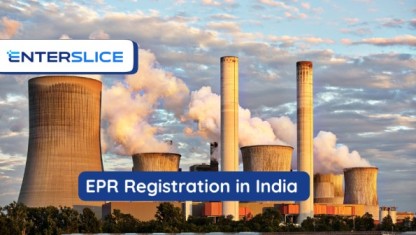

The growing focus on sustainability and waste management in India has brought Extended Producer Responsibility (EPR) into the spotlight. For businesses dealing with plastic, e-waste, batteries, or packaging, EPR registration is no longer optional—it’s a legal requirement. Yet, many companies still struggle to understand how the process works, why it matters, and how to stay compliant without unnecessary hassles.
This blog aims to simplify EPR registration in India, breaking down the process, benefits, and compliance essentials for businesses.
Extended Producer Responsibility, commonly known as EPR, is a government-mandated framework where producers, importers, and brand owners are responsible for the collection, recycling, and safe disposal of the products they introduce into the market.
In India, the Ministry of Environment, Forest and Climate Change (MoEFCC) and the Central Pollution Control Board (CPCB) oversee the EPR system. Businesses that fall under the EPR mandate must obtain registration from CPCB to continue operations legally.
Not every business requires EPR authorization, but if you are dealing in the following, registration is mandatory:
Producers and importers of plastic packaging
Manufacturers and importers of electrical and electronic equipment (EEE)
Producers, importers, and assemblers of batteries
Brand owners introducing packaged goods into the Indian market
If your business deals in any of these products, failing to get EPR registration can lead to penalties, cancellation of licenses, or even a complete halt in operations.
While the idea of regulatory compliance can feel overwhelming, the process of obtaining EPR registration in India is structured and straightforward if approached correctly.
Determine whether your business falls under plastic, e-waste, battery waste, or another regulated category. Each has its own compliance requirements.
Key documents include:
Business incorporation certificate
GST registration
PAN card of the company
Details of products and packaging
Recycling or waste management plan
The application for EPR registration must be submitted online on the CPCB portal along with all required documents and compliance plans.
Once submitted, CPCB authorities review the application. If everything is in order, the registration is granted, usually within a few weeks.
Getting registered is just the first step. Businesses must submit annual or periodic returns showing how they have met their recycling or disposal targets.
Many businesses look at EPR only as a compliance requirement. However, it also brings tangible benefits when approached strategically:
Legal Compliance: Avoids penalties, fines, and business disruptions.
Brand Reputation: Shows customers and stakeholders that your business values sustainability.
Market Advantage: Many buyers now prefer eco-compliant suppliers.
Contribution to Sustainability: Helps reduce environmental impact and promotes responsible business practices.
Despite the benefits, companies often struggle with:
Lack of awareness about changing regulations
Complicated documentation process
Finding authorized recyclers and waste handlers
Timely submission of reports
This is where professional consultants and compliance partners can help by managing end-to-end registration and reporting, allowing businesses to focus on growth.
Delays in registration or non-compliance can lead to heavy penalties, cancellation of operations, and reputational damage. Moreover, with increasing regulatory scrutiny, authorities are becoming stricter in monitoring businesses. Timely EPR registration ensures smooth operations, protects your brand, and positions your company as an environmentally responsible player in the market.
EPR registration in India is more than just a compliance formality—it’s a responsibility toward the environment and future generations. For producers, importers, and brand owners, understanding the process and staying compliant is crucial to avoid penalties and build trust with customers.
If the process seems overwhelming, seeking professional assistance can simplify registration and ensure your business stays on the right track. Taking proactive steps today will save you from compliance headaches tomorrow.
1. How long does it take to get EPR registration in India?
On average, it takes 3 to 6 weeks depending on documentation accuracy and CPCB’s review timeline.
2. Is EPR registration mandatory for all businesses?
No. Only producers, importers, and brand owners of plastic packaging, electronics, or batteries are required to register.
3. What happens if a business doesn’t comply with EPR regulations?
Non-compliance can result in fines, cancellation of business licenses, or even prosecution under environmental laws.
4. Can small businesses apply for EPR registration?
Yes. If they fall under the regulated categories, even small businesses must apply for registration.
5. What documents are required for EPR registration?
The key documents include the company’s incorporation certificate, GST registration, PAN card, product details, packaging details, and a recycling or waste management plan.